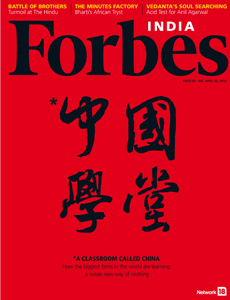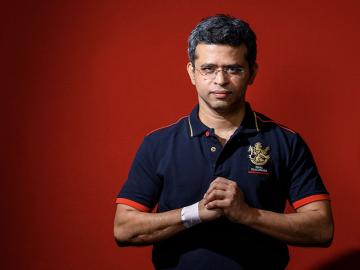
Dance with the Dragon
Letter From the Editor: What does it take to win in China? It's a question that no firm with serious global ambitions can afford to ignore
In our lifetime, there perhaps may not be a bigger phenomenon than the inexorable rise of China. For well over a decade, firms from around the world have tried to grapple with the challenges of doing business there. And now, the tipping point seems to have finally arrived for many of these battle-scarred warriors. The Chinese market is on the verge of becoming the single biggest market for many global companies, bigger than even their home market. And that shouldn’t really surprise us.
 Across every global business, be it from India, Germany, Japan or the US, there’s one fundamental question that every CEO is asking: What does it take to win in China? It’s a question that no firm with serious global ambitions can afford to ignore.
Across every global business, be it from India, Germany, Japan or the US, there’s one fundamental question that every CEO is asking: What does it take to win in China? It’s a question that no firm with serious global ambitions can afford to ignore. Last year, I got a call from a senior executive who is also an ardent reader of Forbes India. Rajesh Dalal, till recently the head of mergers and acquisitions for the Asia- Pacific region in Johnson & Johnson Medical, had been travelling widely across the region and had seen the Chinese transformation from close quarters. He wanted to know if we were keen to commission a series of columns based on his diverse set of experiences in China.
That conversation triggered off an exciting editorial project that eventually resulted in this cover story package. For the past four months, Neelima Mahajan-Bansal, one of our most talented young journalists, teamed up with Rajesh to bring you the answers to the Chinese riddle. Between them, they spoke to scores of senior executives across a range of global firms around the world, including some from India, and a pack of leading China experts, to figure what it takes to grab the China opportunity. What they found was interesting: China has forced companies, particularly those from the West, to look for a fundamentally new operating model. Here’s a sample: Guess what often occupies about 65 percent of a CEO’s time there? It is managing the government machinery. It is the single biggest reason why global businesses lose their way there. And in one of our stories in the package, we tell you how some of the smartest players have learnt their lessons — sometimes the hard way — and now spend as much time and effort on engaging the government as they do on business strategy.
What does it mean for India? We discovered a clutch of Indian firms that have dug deep roots in China and seem well-positioned to do well. But equally, there were scores of leading firms that are completely missing out on the action. China may be a tough nut to crack — but it’s also the laboratory from where the next practices are emerging. Can you afford to be absent? We think not.
Please do write in with your comments. We’d love to hear what you have to say.
(This story appears in the 30 April, 2010 issue of Forbes India. To visit our Archives, click here.)
-
 Bipin Zacharia
Bipin ZachariaDear Sir, An article on how china has won 100 olympic medals in 2008 olympics where in India has managed to get only 3 medals should have been interesting.I think when every one talks about india on par with china, in the sports arena we are far behind them.As rightly told by one of clients, on his recent visit to China,inside a small radius of 3-5km radius they have around 3 swimming polls,2 basket ball courts and a tennis court which will encourage the kids to play these sports.Where in India the basic sports nfrastructure itself is very less.So from the grass root level we have to implement the infrastructure rather than just talking about Olympic gold medals.
on May 12, 2010 -
 Nithin
NithinAs you rightly mentioned, it is important to maintain relations in China, if you have to be successful. During my experience of three years in china, I have found that it is fundamentally important to know the cultural differences in China, else it may lead to lot of mistrust which is the basis for success in business. Money is the only religion in China!
on Apr 17, 2010 -
 Aditya Choudhary
Aditya ChoudharyWe had our imperial British raj, now we are heading for the dragon raj which in ways more than one would be much more imposing and brutal. The Chinese are definitely mending the global practices according to their will and have successfully showed the power of a country of a billion people. This purchasing power coupled with smart strategy by the govt heaped wonders in their market and lifestyles.I wonder when we would be as OPPORTUNIST
on Apr 16, 2010














